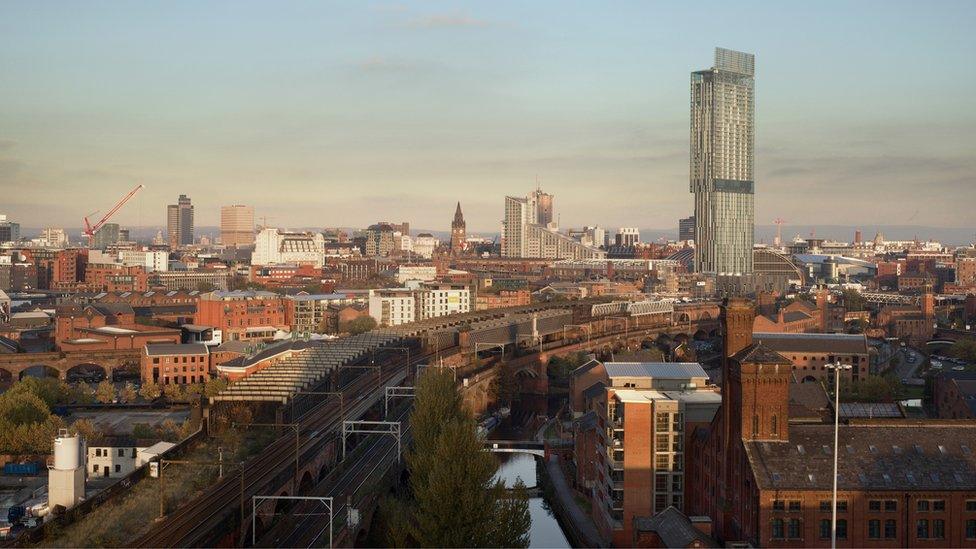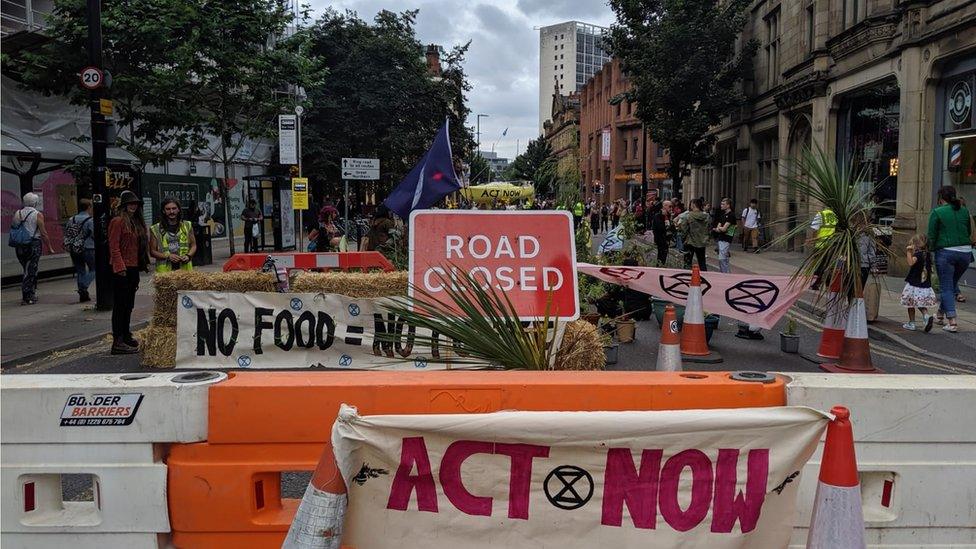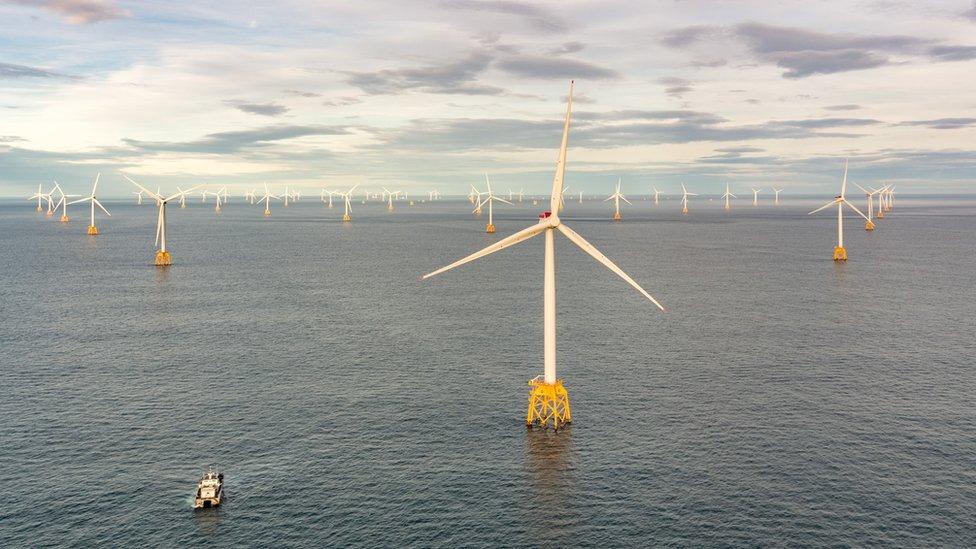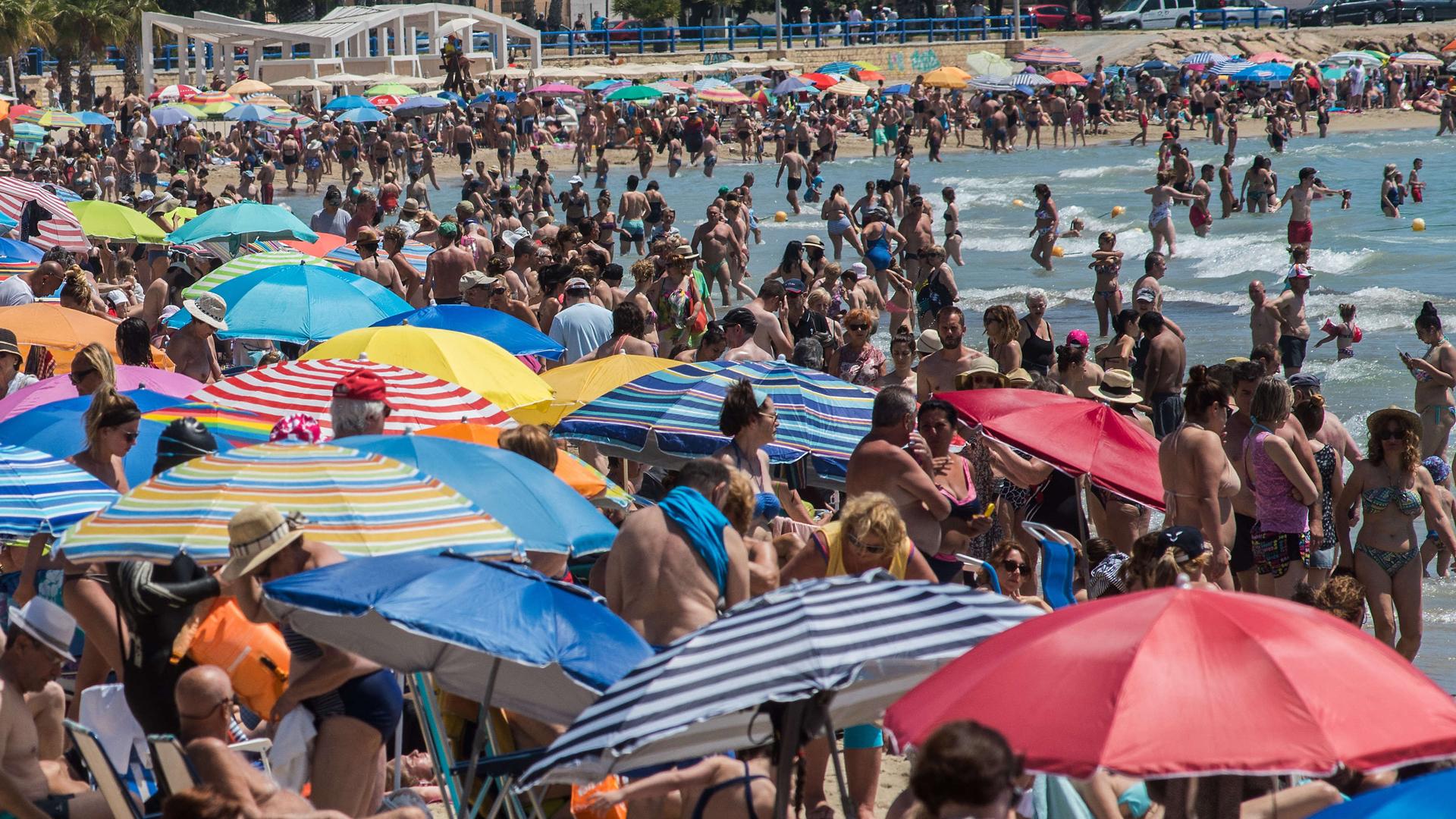Manchester adopts plan to halve CO2 emissions by 2025
- Published

The plan aims to reduce carbon emissions from homes, businesses and transport in the city
A goal to halve carbon emissions in Manchester by 2025 has been set under a plan approved by council bosses.
The city is thought to contribute some 2.1m tonnes of CO2 emissions each year.
The climate change action plan, external commits to reducing CO2 from homes, workplaces and transport "by at least 50%" over five years and "reducing aviation emissions from Manchester Airport".
Campaigners welcomed the move but criticised plans to build more roads and increase airport passenger numbers.
It contributes to the city's aim to become "zero carbon", which in Manchester's case means a reduction of about 95% to current levels by 2038.
This would be 12 years ahead of the scheduled UK target.

Climate change protesters blockaded one of the busiest streets in Manchester last year
The action plan contains commitments including:
Spending £15m on cutting carbon emissions from council buildings by 3,000 tonnes a year
Investing £1m to plant new trees
Developing large scale solar and wind power energy schemes
Introducing 27 new electric bin lorries
Replacing more street lighting with low energy LED bulbs
Sixty organisations from the city's climate change partnership each submitted their own reduction plans.
Angeliki Stogia, the council's executive member for environment, said the next five years "will be critical if we are to avoid the catastrophic impacts of climate change" and emphasised the need for "collective action".
'Climate emergency'
Ali Abbas from Manchester Friends of the Earth said he was "pleased the council is starting to take the climate emergency seriously".
But he called for the ditching of current plans to build new roads and "double passenger numbers at the airport" and demanded a "climate emergency levy on flights" from the airport.
Manchester Airport is part-owned by the council and is planning a £1bn expansion, including a new £50m car park.
Mr Abbas added: "If we're going to halve emissions in the next five years, we need to stop adding to the problem."
- Published3 May 2019

- Published18 December 2020

- Published21 January 2020

